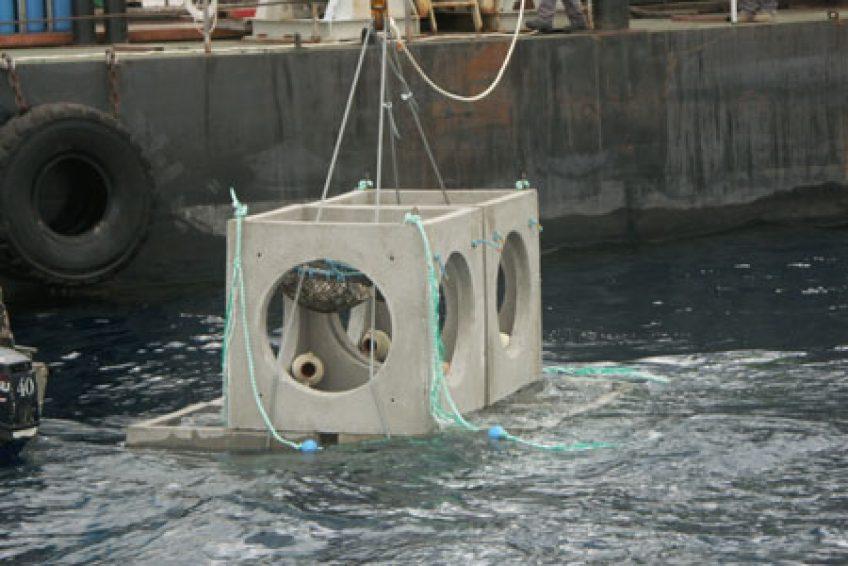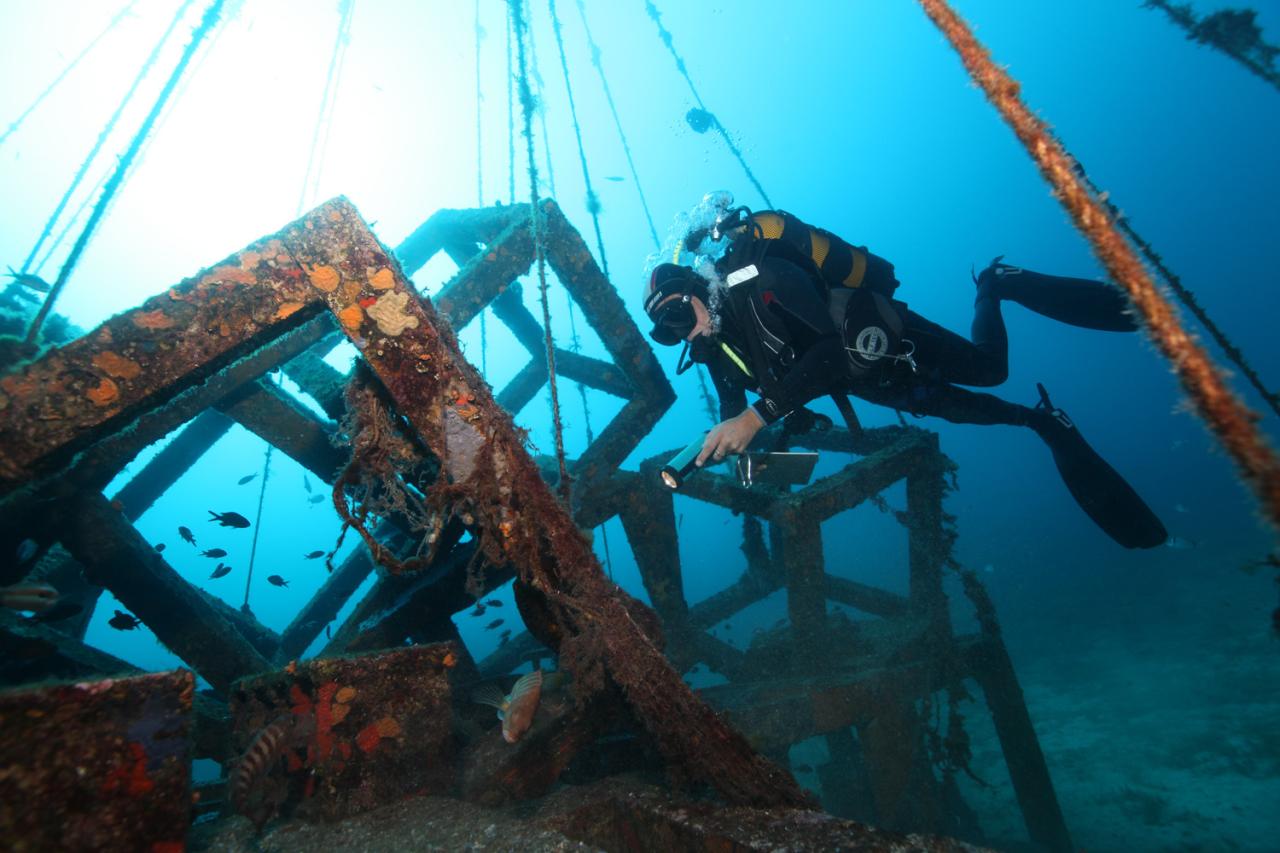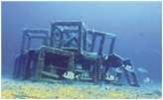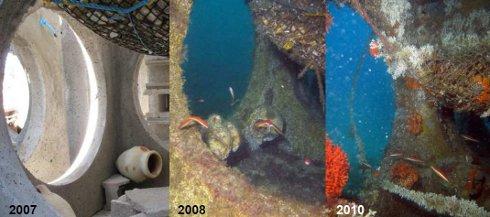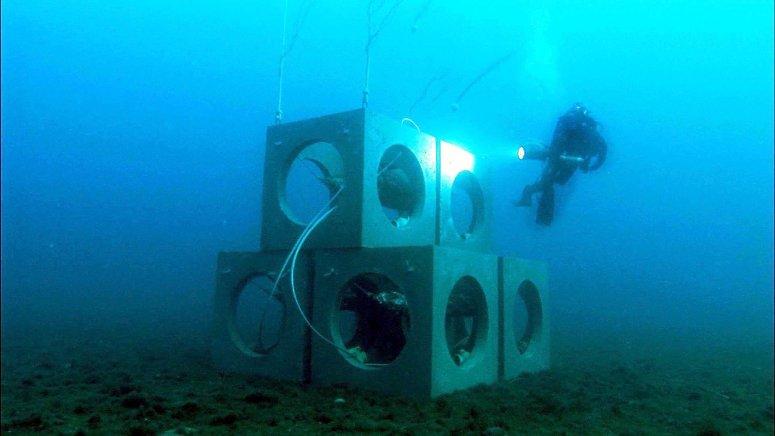
Area characterisation:
Scale of the project: object (building, etc.)
Objective:
Ecological restoration by immersing diverse artificial reefs to provide shelters and habitats to marine species. The aim of the project is to diversify and regenerate marine natural resources in order to both make local fishing durable and ecological restoration.
- Protect and provide long term benefits related to biodiversity and then to all the economical activities (fishery, tourism) linked in.
Images
Financing:
Global (estimated) cost of the project: more than 5M€
Financing mechanism: cluster1 public financing
BUSINESS MODEL:
Business cluster: Social
Business model: Adopt a stewardship role
Business cluster: Technological
Business model: Maximize material productivity and energy efficiency
The aim of this project is to protect and provide long term benefits related to biodiversity and then to all the economical activities (fishery, tourism) linked in.
Actions:
Immersion of diverse artificial reefs to provide habitats to aquatic species
Transferability of result:
Process enablers:
Knowledge drivers → ... → ...
Governance → ... → ...
...
Process inhibitors:
… → ... → ...
...
Expected time for the NbS to become fully effective after its implementation: large (beyond 5 years)
Feedback: still well adapted
Expected life time of the intervention: more than 30 years
Date for project delivered: 2037, 2007 or 2017 (????)
Organisations:
- Marseille Oceanographic Center
- Le Comité Local des Pêches et Prud’homie de Marseille
- la Fédération française d’études et de Sports Sous-Marins (FFESSM)
- Fédération des Pêcheurs en Mer
- Scientific Interest Group Posidonie
- P2a Développement
- IFREMER
- "Côte-Bleue" marine park, DREAL-PACA
GOVERNANCE MODEL:
Governance cluster: cluster5 network governance
Governance model: ...
Client:
Contacts:
Alice Duquesnoy (alice.duquesnoy-mitjavila@plante-et-cite.fr)
Olivier Damas
Plante & Cité (https://www.plante-et-cite.fr/)
Maison du Végétal, 26 Rue Jean Dixmeras, 49000, Angers
NBS goals:
- Restoring ecosystems and their functions
- Developing climate change mitigation
- Establishing nature-based solutions for coastal resilience
- Nature-based solutions and the insurance value of ecosystems
- Increasing carbon sequestration through nature-based solutions
NBS benefits:
- Better protection and restoration of coastal ecosystems
- Developing climate change mitigation
- Carbon sequestration and storage
- Increase achievements of biodiversity targets
- Increase Biodiversity
- Sustainable development of coastal regions
Further information:
Nature4Cities (https://www.nature4cities.eu/) aims to develop a knowledge diffusion around Nature-Based Solution (NbS) and a decision support platform through new collaborative models.
This project is part of the Nature4Cities's pioneer case studies database, it will feed the observatory, NbS pre-selection and replication tools, gathered into the Geocluster4NBS.
This project was chosen as a pioneer case study for the following reasons: the project creates marine ecological habitats.
Nature4Cities project has received funding from the European Union’s Horizon 2020 research and innovation program under grant agreement No 730468.
